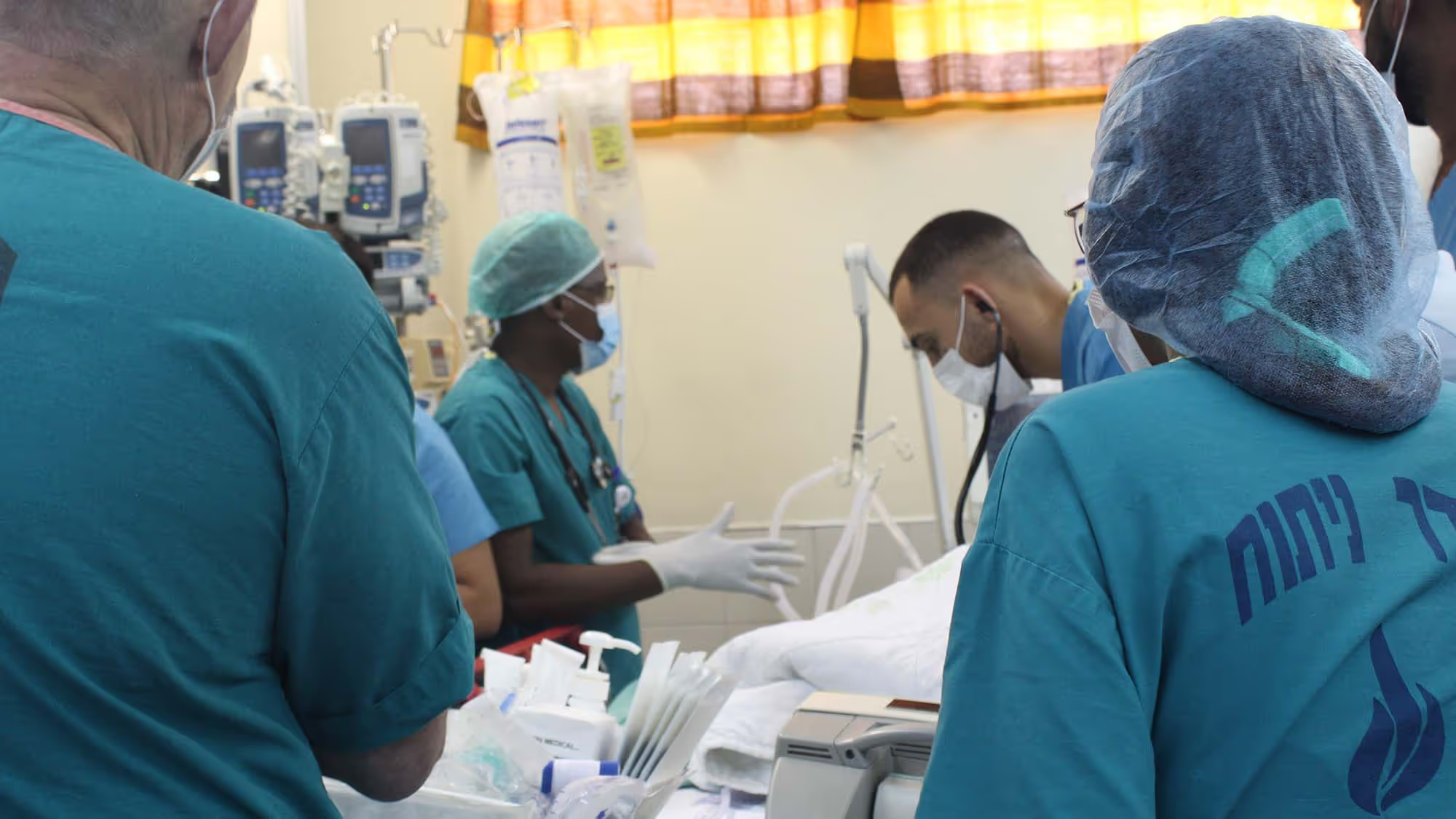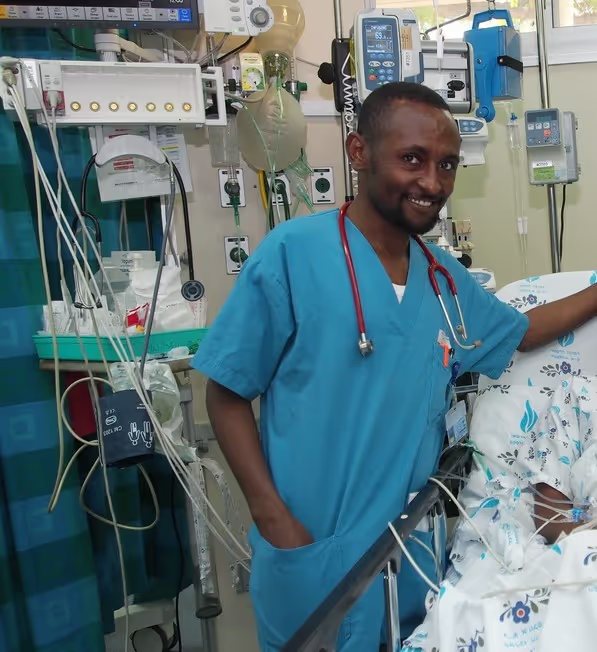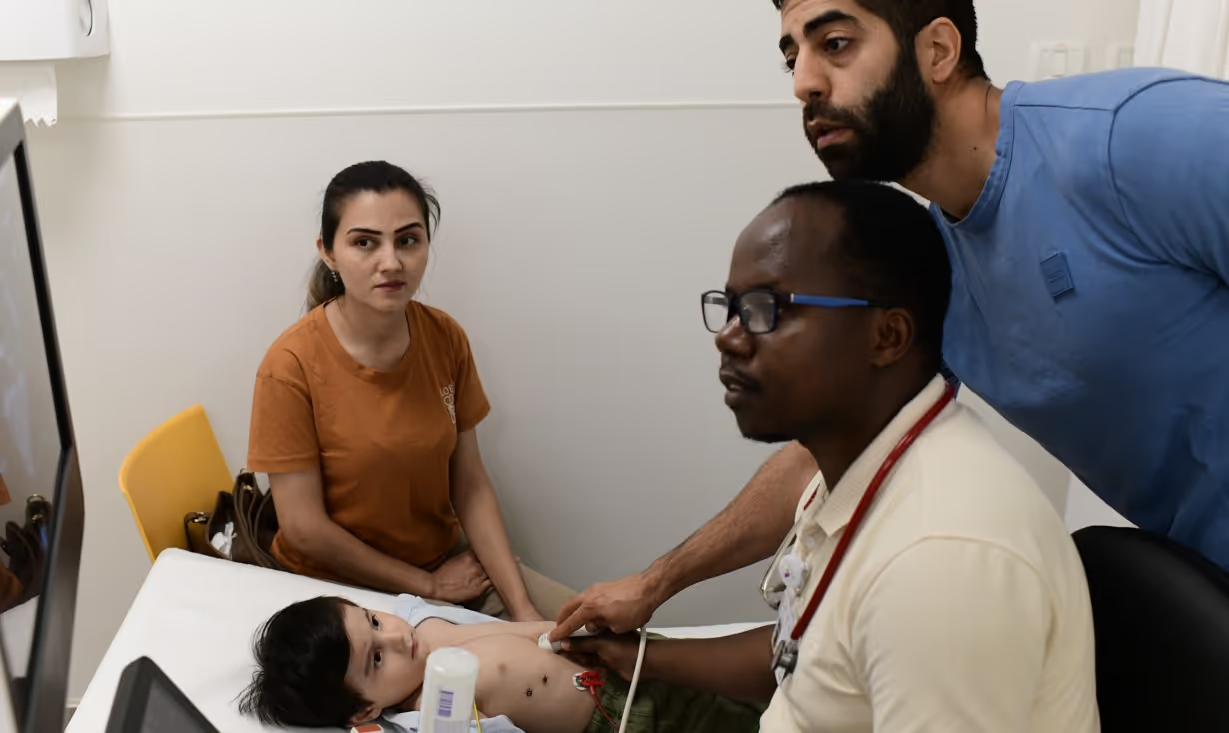What’s your name and how old are you?
My name is Michael Kangwa and I am 32 years old.
Where are you from?
I am from the South of Zambia, in Southern Africa. I was born in the Copperbelt Province, north of Lusaka in a place called Luanshya, and I grew up in a city called Ndola. I’ve been living for several years now in Lusaka.
What was your childhood like?
I grew up living with my parents, my brothers and sisters. I have two brothers and three sisters. My mother stopped working when I was very young, and my father works at a construction company as an information and computer technology (ICT) manager. As a kid I loved playing music and spent hours doing it. I played the keyboard at home and loved playing the organ and the piano. Now I am able to play the organ, piano, violin, and base. I started playing music in primary school and I loved that the principal at my school and my dad played. My dad encouraged me to continue playing and while I enjoy it, I have never had professional training.
Do you think there is a connection between music and medicine?
Yes, I really do think so. Because there is something beyond the practice of medicine, it is an art. And somehow that is musical. It’s a mix of people coming from different environments and when it is orchestrated right, it works correctly.
How did you forge a path to your career?
In secondary school (high school), I took many technical classes like geometrical drawing, metal work, and mathematics. And I enjoyed those subjects. When it was time to go to university, I naturally wanted to go to the school of natural sciences, which is in Lusaka.
When did you know you wanted to go into medicine?
In secondary school I was, of course, introduced to subjects like biology and chemistry, but I was not interested in pursuing medicine. Initially I was a very technical person and I imagined I would do something like engineering. However, in university I realized engineering wasn’t exactly what I thought it would be. I spoke to a number of people including senior medical students and engineers and realized that medicine wasn’t exactly what I had imagined, either. I decided to go for it.
Which university did you go to?
University of Zambia in Lusaka.
How long did you study?
The first year is A levels and then the second year is an introduction to medical school. So, after two years I moved to the medical campus where I completed two more years of school. I graduated with a degree in human biology. After that, we do clerkships (clinical years). In total, I studied for seven years.
How did you choose your major, or specialty in university?
After my first year I had the dilemma of engineering versus medicine. During the first year of university, I started to see the reality of various careers, especially in my country. It’s rather different then the reality you would imagine.
Were you always strong in the sciences?
Yes, I was always strong in the technical subjects. I wasn’t really strong in the information subjects, like biology. I like to reason things. However, in medical school, I realized that it was quite different. Of course, there was a lot of information, but the information was just a part of medical school. The skill is the bigger part of it.
What do you do after your seven years of medical training?
I moved to Livingston to work at their hospital. I had an internship for two years which generally includes internal medicine, OBGYN, and pediatric surgery. Then I returned to the University Teaching Hospital in Lusaka where I had my post graduate training in anesthesia.
What did someone say that convinced you to study/ pursue medicine as a career?
I remember a senior medical student saying that in your third year you will study biology in a completely different way than you did in secondary school. He described it as if you were planning and constructing a house. They laid the foundation and now built the house. I realized that the collection of all the technical subjects I loved were incorporated in these studies. I felt that this career would be more satisfying than engineering.
What about the human aspect of medicine?
I honestly was not aware of the human interactions until my clinical years in medical school. I was very introverted and did not really enjoy interacting with people at that time. I experienced the human side of medicine. It was not explained to me before. I realized the human experience was really a great thing about medicine.
At what point were you introduced to the specialty of anesthesiology?
The second year of the clerkship, in the surgery rotation. At that point, I did not think I would pursue anesthesiology, but in the end it felt like a rounded and complete discipline. It clicked with me.
When did you decide you wanted to be an anesthesiologist?
After I started working during my internship, I realized how important and necessary anesthesiology was, specifically in my country. I saw the gap and I remembered my clerkship and then I said I would go for it.
What is the “gap” of physicians in Zambia?
We have lots of “clinical officers” in our country who have had basic exposure to medicine. They are not physicians. This is the reason that complicated surgeries aren’t performed; It is because these medical professionals have a limited skill set.
Are pediatric cardiac surgeries performed at all in Zambia?
We have visiting missions that provide care. It’s currently almost a “seasonal” operation.
When did you first hear about SACH?
Last year, in August 2020.
How did you get to SACH?
I was really impressed at the opportunity and what SACH was involved in. I was super interested, and I asked for more information. I was especially impressed that it came in the context of setting up a cardiac center in Zambia. There was an opportunity and obvious need for the skill.
Were you thinking of doing a fellowship abroad?
Yes. But I did not know the direction I would pick. I asked myself, what do Zambians need? Cardiac care is an obvious gap that we have in Zambia. The largest challenge was the facilities and the human resources.
How long will you be in Israel?
2-3 years.
How does it make you feel to be in Israel that long?
It makes me feel good. I am comforted by the fact that I will get as much exposure as possible. I am keen to get as much as I can get during my time training here.
What do people think back home about you being here?
They were really happy, excited and anxious to hear what comes out of this.
Did you have any thoughts about coming to Israel?
Yes. I have read a lot about Israel. I have grown up hearing a lot about Israel in a religious context. In a Christian upbringing, Israel is a concept of a place. Sometimes you don’t know the true reflection of what is there or what the whole picture is. I did not know much about Tel Aviv though I had heard much about Jerusalem. I keep my mind open to learn through experiences more about the country.
What’s your hope for the future?
As a student from a place like I came from, you see the limitations of the services. To see the possibility of these things is amazing. I really am anticipating a lot in terms of cardiac services. There is a lot of need for pediatric cardiac services and it’s amazing to be on a path that is needed and possible to create solutions. I am positive that this will do a lot of good for my country.
Where will you work when you go home?
The cardiac center that will be built. The public hospital is entirely government funded. The other cardiac surgeon is just an adult surgeon, and he has limitations. Training here with Dr. Ziwa is a fantastic opportunity prior to our return to work together in Zambia.
Anything else you want to say about SACH?
It’s a dream. I am really impressed with everything at SACH and so thankful for the opportunity given to me. I am learning more about the organization and I am really impressed with the dedication. Coming from a country with the need for pediatric cardiac care, it’s just unbelievable. SACH is one big family with people from all over the world. To SACH, I want to say personally and on behalf of my country - thank you.


